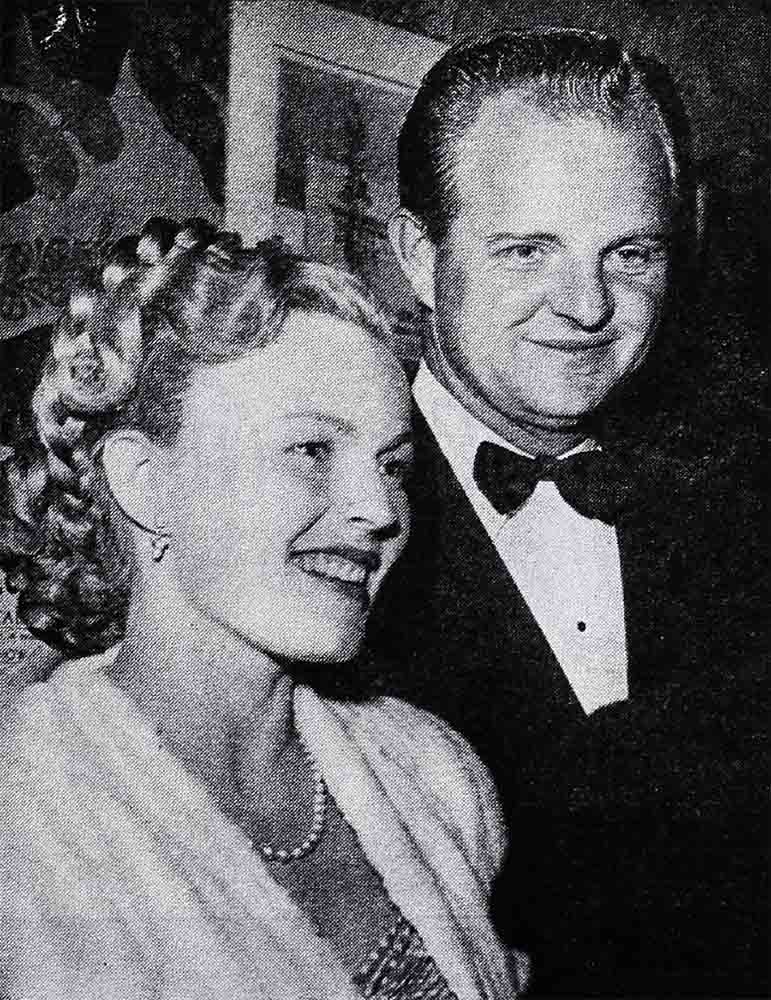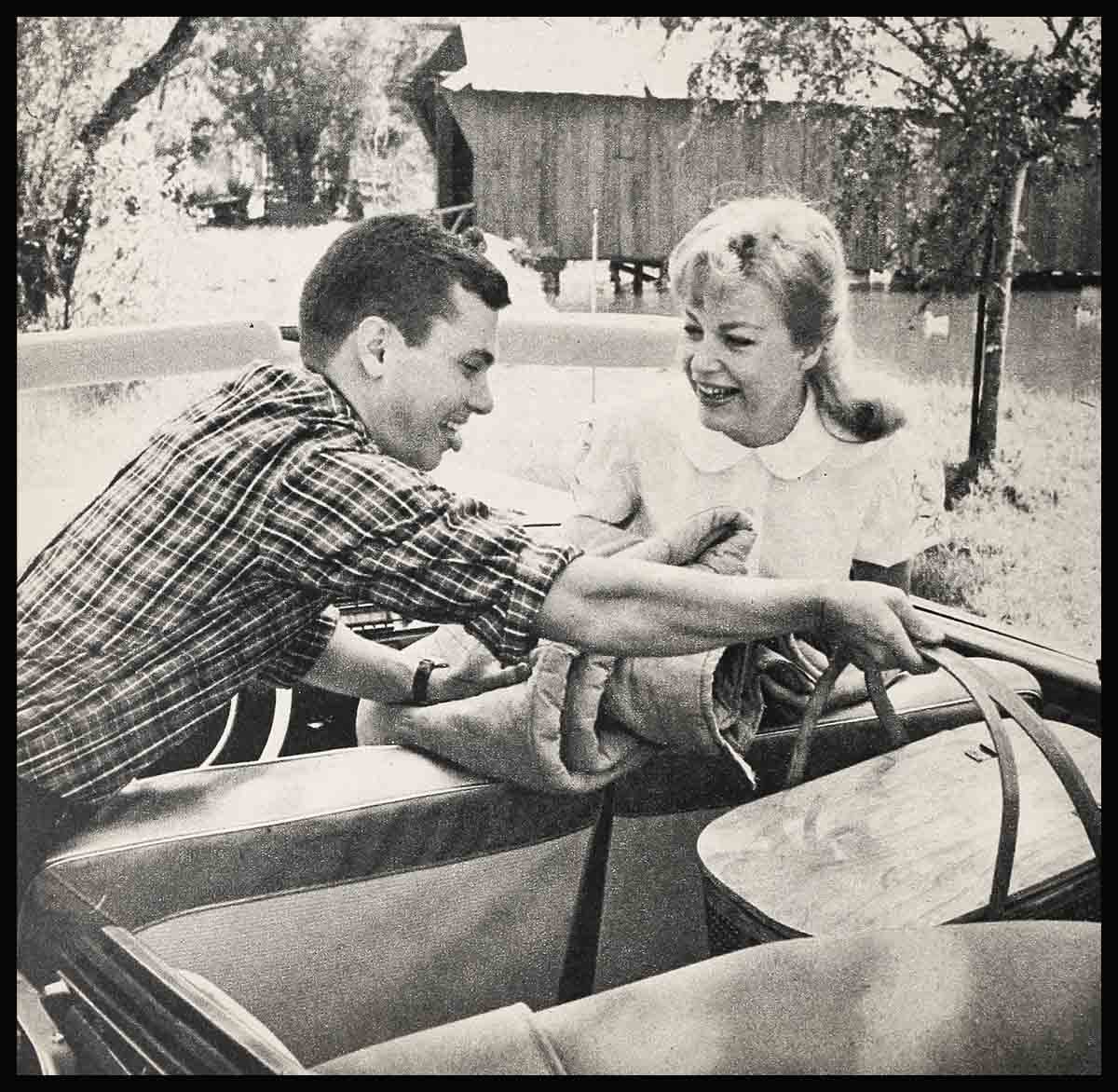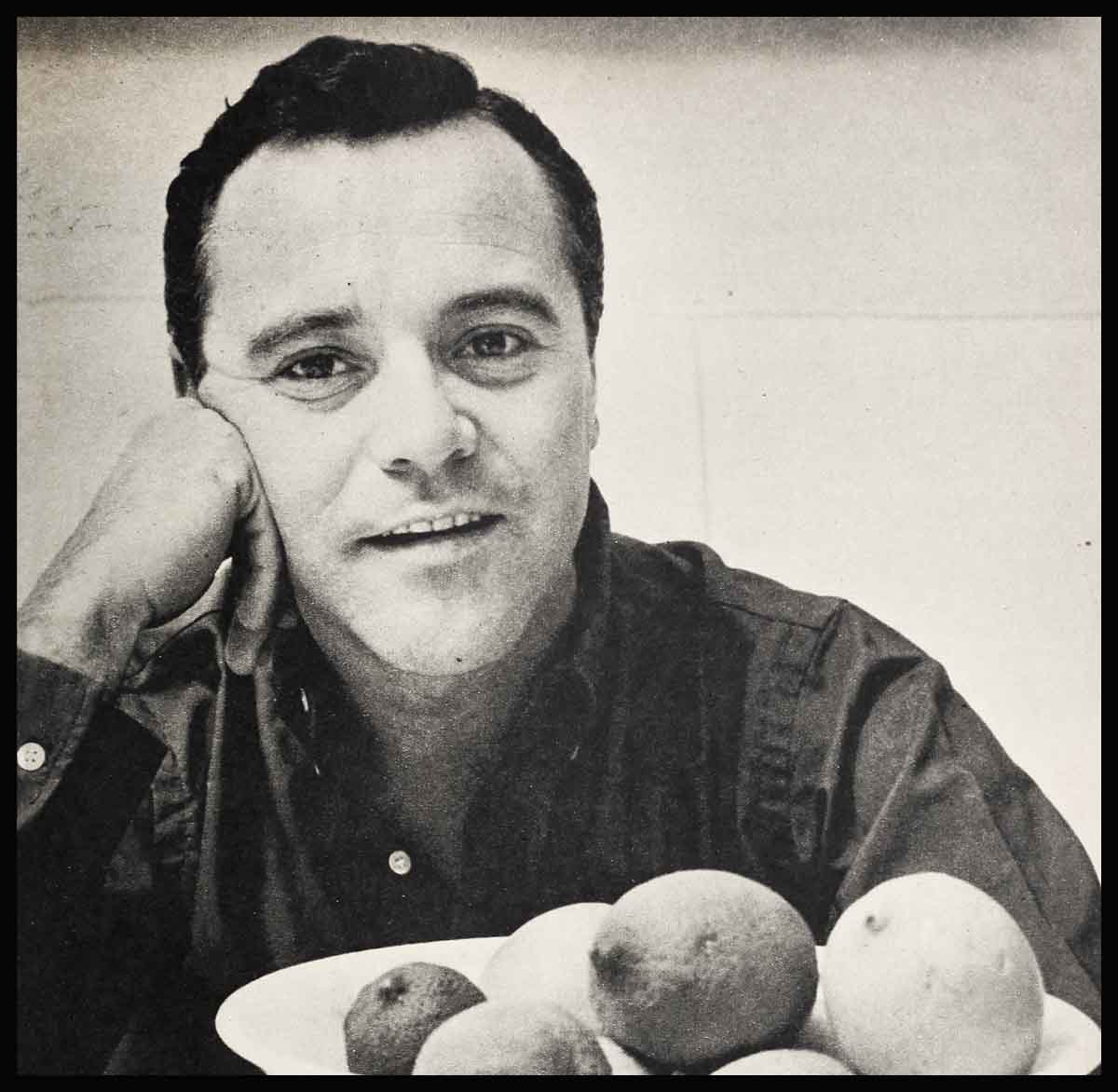End of A Love Story
June Haver walked very quietly into the coffee shop on the ground floor of St. John’s Hospital in Santa Monica. She was pale as she climbed up on a counter stool. The waitresses waited for her to speak, but she seemed to be looking straight through them. “Coffee, Junie?” one of them asked. “Please.” She spooned off a little of the hot black coffee, then drank it halfway down the cup.
The waitresses had never met the little movie star before her fiance, Dr. John Duzik, had been admitted to St. John’s for an emergency operation. It had been a big thrill for them when she had popped in for a quick cup of coffee that day. But, in the past six terrible weeks, she had become the adopted child of all of them. They knew the dreadful news from upstairs; how, after Dr. Duzik’s operation, it had been discovered that he was a hemophiliac—a bleeder. They knew also, that he had developed uremic poisoning, had been in delirium.

Still, it was hope that made one of them say, “Is the doctor any better today?”
“He’s dying,” June said, quickly. She finished the coffee and walked out, dry-eyed.
Her tears were all shed by then. For six weeks, she had hoped and prayed and believed. But that day, she knew she must face the most complete of all realities—Death!
In a little interval when John Duzik had seemed to be rallying, she had told him she would marry him, no matter what, the moment he was well.
She and John had been waiting for a dispensation from the Church of Rome so they could marry within their religion. There is no hurrying the Church. It frowns upon publicity about such things. Dr. Duzik was an even more devout Catholic than June. After all, he would never have married outside the Church as she had, when she eloped with Jimmy Zito.
Following John’s operation, when they gave him the first of the transfusions, June cried so hard that it was impossible to shoot close-ups of her in “The Daughter of Rosie O’Grady,” the picture for which she was on loan-out to Warner Brothers.
That loan-out point is important. Studios usually protect their own players, but they rarely are so careful about personalities from other lots. Also, a musical comedy like “Rosie O’Grady” costs approximately $5,000 a day to shoot. Jack Warner is notoriously not a sentimental man, yet he shut down the picture for four days. June stayed constantly in the hospital, sleeping on a cot in the waiting room by night, staying close to her fiance’s side by day. The blood bank at the hospital began to run perilously low.
It was then that an appeal for blood donors was circulated at Twentieth Century-Fox, June’s own studio, and at Warners. In one day, at Twentieth, forty people volunteered to help June with plasma. From Warners, came donations of twenty-five pints.
This generosity sent June flying back to work. She went before the camera, and pretending to be gay, gave the greatest performance she has ever recorded.
Then the relapse came, but June stayed on working. She had two lives now—the studio and the hospital.
Just before John’s death, they shot the final production number, wherein June and the whole cast had to sing and dance a tune called, “May We Always Be Together As We Are Today.” The studio knew the scene would take two days to shoot.
June said, “If we work late, I think maybe we can get it done today. Do you mind trying?” It was early in the morning that they started shooting, midnight when they quit. But the scene was flawlessly, wonderfully recorded, sparkling as tinsel, warm as laughter.
In the otherwise deserted lot, practically the whole “Rosie O’Grady” company, crew and night watchmen tagged June out to her car. Somebody said, “You did want us to finish up tonight, Junie?”
She smiled, “Oh, yes,” she said. “You’ve been so wonderful. I had to finish as soon as we could, because, well, we aren’t counting in terms of days now . . . it’s hours. . . .” She threw her car in gear and they watched her disappear, westward to Santa Monica.
The night after the doctor’s funeral, June dipped out of Hollywood with her sister, o be gone for an indefinite time. And Hollywood, which takes so many unpleasant blows—what with multiple marriages and multiple divorces, and people getting giddy in night clubs and censors pouncing—lifted its head with pride.
THE END
It is a quote. PHOTOPLAY MAGAZINE JANUARY 1950





No Comments